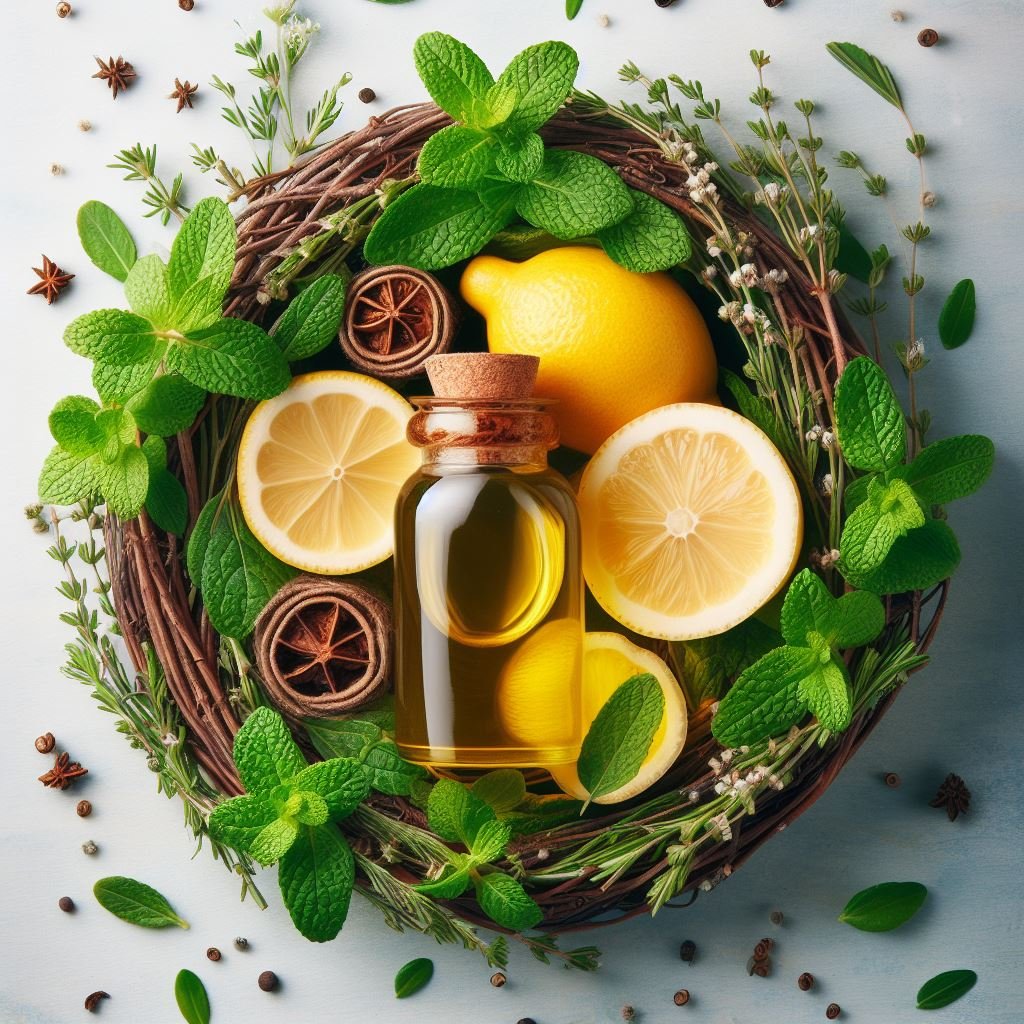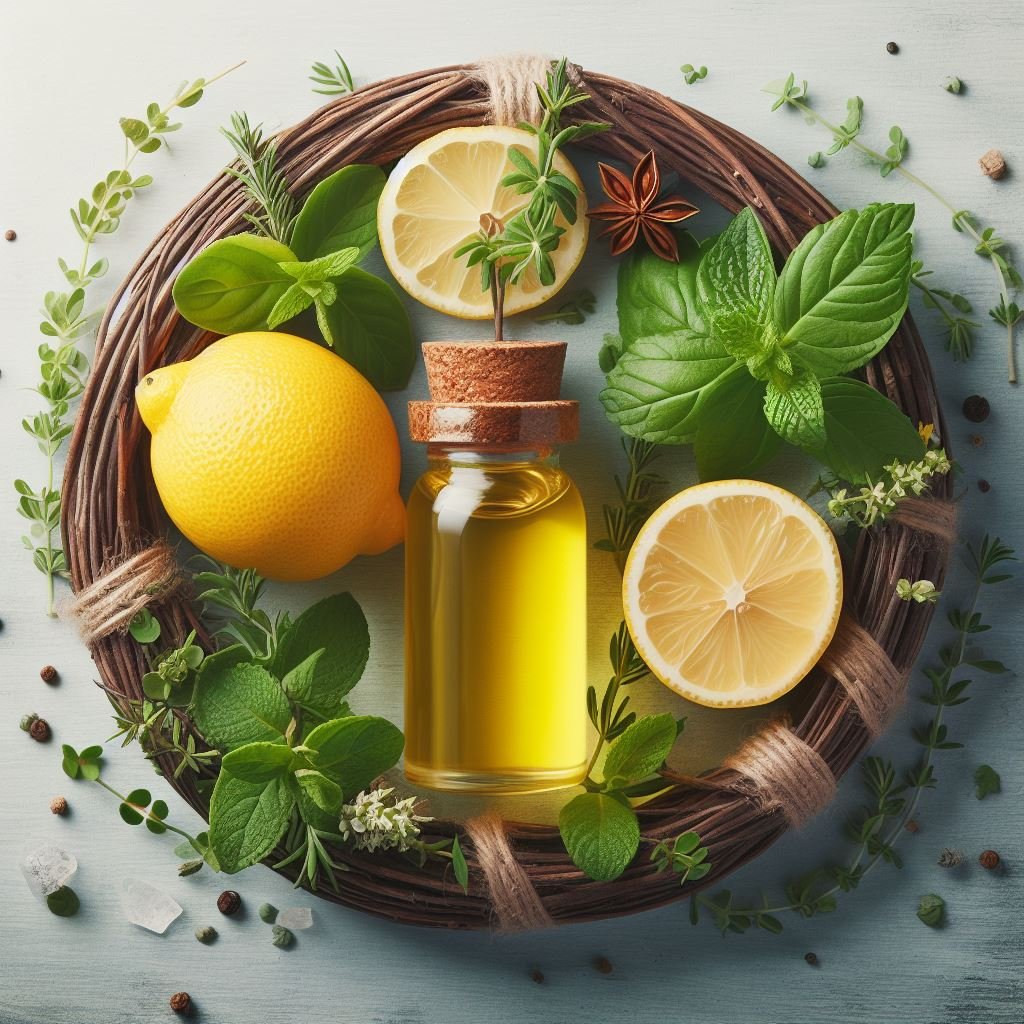Natural Lemon Essential Oil: Nature’s Healing Elixir
Natural Lemon essential oil is a concentrated oil extracted from the peel of the lemon fruit (Citrus limon). The extraction process typically involves cold-pressing the outer peel of the lemon to capture the aromatic and volatile compounds present in the peel. These compounds include the characteristic citrus scent and various bioactive compounds.
What Is Lemon Essential Oil?
Lemon essential oil is known for its refreshing, uplifting aroma, which is often associated with feelings of cleanliness and positivity. It is widely used in aromatherapy and as an ingredient in various cosmetic and household products due to its pleasant fragrance.
In addition to its aromatic properties, this essential oil is believed to have several potential benefits. Some people use it for its potential antibacterial and antiviral properties, while others incorporate it into skincare routines for its astringent and brightening effects. It’s important to note that while this essential oil has its uses, it should be used with caution, as it can be photosensitive and may cause skin irritation in some individuals. Always dilute it properly and perform a patch test before applying it to the skin.
As with any essential oil, it’s crucial to use it responsibly and according to guidelines to ensure safety and effectiveness. If you have specific health concerns or conditions, it’s advisable to consult with a qualified healthcare professional before using essential oils for therapeutic purposes.
How is Lemon Essential Oil Obtained?
It is typically obtained through a process known as cold-press extraction. Here is a step-by-step explanation of how lemon essential oil is produced:
- Harvesting: Lemons are harvested when they are ripe. The quality of the lemons used in the extraction process can affect the quality of the essential oil.
- Washing and Cleaning: The lemons are thoroughly washed and cleaned to remove any dirt or debris from the peel.
- Peeling: The outer peel, or zest, is carefully separated from the lemon flesh. It’s the peel that contains the essential oil.
- Cold-Press Extraction: The cold-press extraction method is the most common technique for obtaining lemon essential oil. In this method, the lemon peels are mechanically pressed to rupture the oil glands and release the essential oil. The process is called “cold-press” because no heat is applied during extraction. The goal is to preserve the delicate aromatic compounds in the oil.
- Separation: The essential oil is separated from the liquid portion (usually water) that is also extracted during the process. This separation can be achieved through natural settling or by using centrifugation.
- Filtration: The extracted oil may undergo filtration to remove any remaining impurities or particles.
- Storage: The resulting this miracle essential oil is then stored in dark glass bottles to protect it from light, as exposure to light can cause the oil to degrade.
It’s important to note that the quality of the essential oil depends on factors such as the type of lemon used, the extraction method, and the overall care taken during the production process. Cold-press extraction is favored for citrus essential oils because it helps retain the oil’s natural aroma and therapeutic properties.
What is Composition?
It is a complex mixture of various chemical compounds, and its composition can vary based on factors such as the lemon variety, geographical location, climate, and extraction method. However, some common components found in lemon essential oil include:
- Limonene: This is the primary and most abundant compound in lemon essential oil, constituting a significant portion of its composition. Limonene is a monoterpene known for its citrus aroma and is believed to have various health benefits.
- β-Pinene: Another monoterpene found in lemon oil, β-pinene contributes to the oil’s fragrance and has potential antioxidant properties.
- γ-Terpinene: This terpene contributes to the characteristic aroma of this essential oil and may have antimicrobial properties.
- α-Pinene: This compound is common in many essential oils and is known for its fresh, pine-like scent.
- Linalool: Linalool is a terpene alcohol that contributes floral notes to the overall aroma of lemon oil.
- Citral: Citral is a compound that gives lemon its distinctive citrus scent. It consists of two isomers: geranial and neral.
- Sabinene: Sabinene is a bicyclic monoterpene that contributes to the oil’s aroma and is found in various essential oils.
- Terpinolene: This is a minor component in lemon oil, but it adds to the overall complexity of the aroma.
It’s important to note that the quality and therapeutic properties of lemon essential oil can be influenced by the presence and proportions of these compounds. Additionally, when using essential oils, it’s crucial to follow recommended guidelines for dilution and application, as they are highly concentrated substances and can cause skin irritation or other adverse reactions if not used properly.













Reviews
There are no reviews yet.